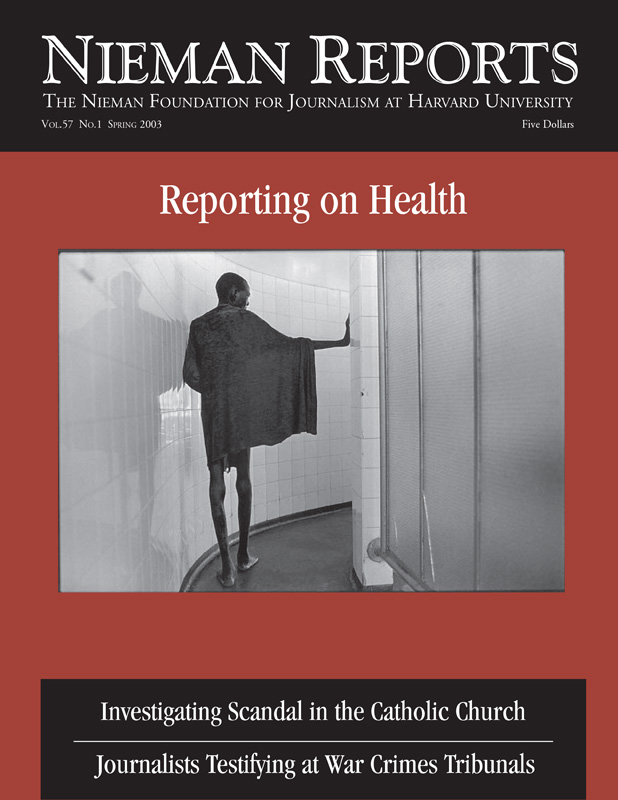RELATED ARTICLE
"The Anthrax Attacks"
- Patricia ThomasIndividual reporters and the profession are adapting to a world where bioterrorism is no longer unthinkable. Some journalism schools have instituted courses such as “Covering International Terrorism,” which was taught at Boston University for the first time last year. Professional organizations have created educational offerings for working journalists.
With help from the Carnegie Corporation of New York, the Radio and Television News Directors Foundation (RTNDF) produced a two-hour bioterrorism seminar that was broadcast by satellite in late 2001. The organization also distributed a journalist’s guide to covering bioterrorism to every television and radio newsroom. For 2003, the RTNDF plans another satellite forum, workshops, presentations at professional conferences, and additional publications—all aimed at preparing broadcast journalists to cope with biological warfare.
The Foundation for American Communications (FACS), a 25-yearold organization that conducts educational programs and develops print and online resources for journalists, has turned its attention to bioterrorism as well. In December 2001, FACS teamed up with the television news directors and the National Academy of Sciences, National Academy of Engineering, and Institute of Medicine for a workshop aimed at training reporters to cover terrorism.
"The Anthrax Attacks"
- Patricia ThomasIndividual reporters and the profession are adapting to a world where bioterrorism is no longer unthinkable. Some journalism schools have instituted courses such as “Covering International Terrorism,” which was taught at Boston University for the first time last year. Professional organizations have created educational offerings for working journalists.
With help from the Carnegie Corporation of New York, the Radio and Television News Directors Foundation (RTNDF) produced a two-hour bioterrorism seminar that was broadcast by satellite in late 2001. The organization also distributed a journalist’s guide to covering bioterrorism to every television and radio newsroom. For 2003, the RTNDF plans another satellite forum, workshops, presentations at professional conferences, and additional publications—all aimed at preparing broadcast journalists to cope with biological warfare.
The Foundation for American Communications (FACS), a 25-yearold organization that conducts educational programs and develops print and online resources for journalists, has turned its attention to bioterrorism as well. In December 2001, FACS teamed up with the television news directors and the National Academy of Sciences, National Academy of Engineering, and Institute of Medicine for a workshop aimed at training reporters to cover terrorism.



